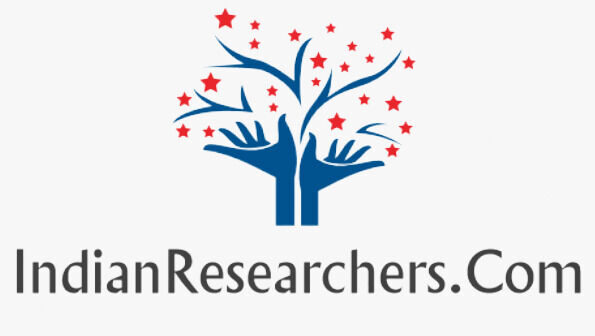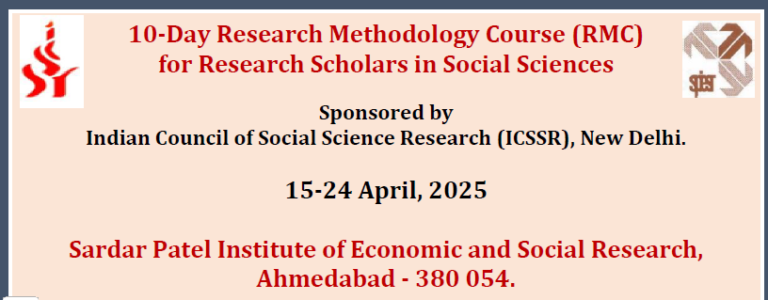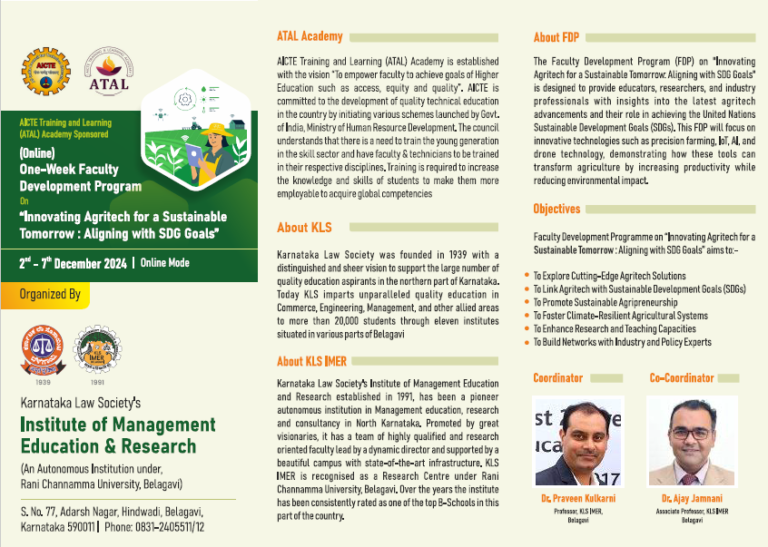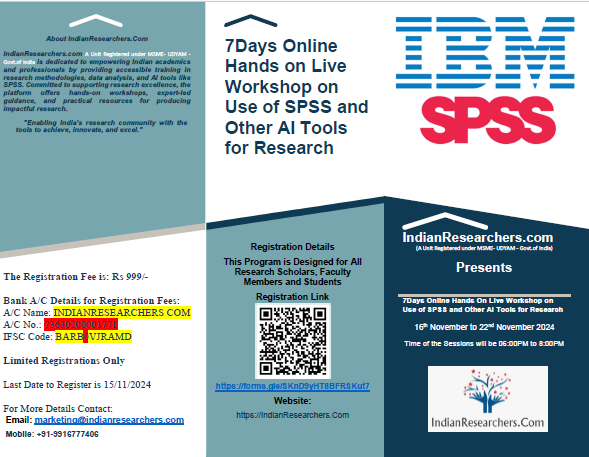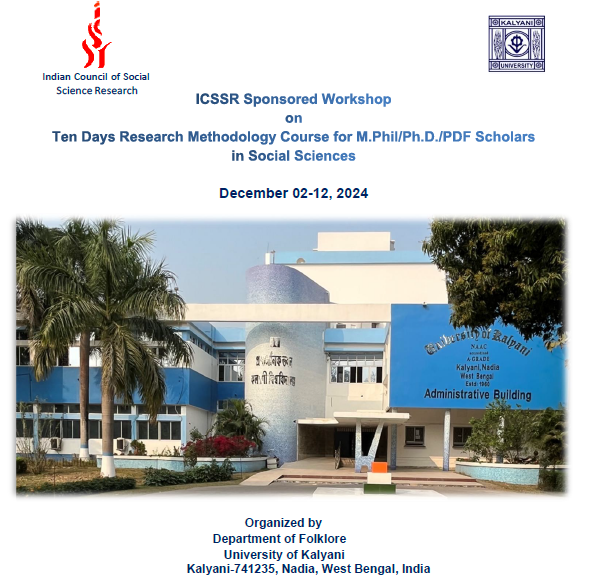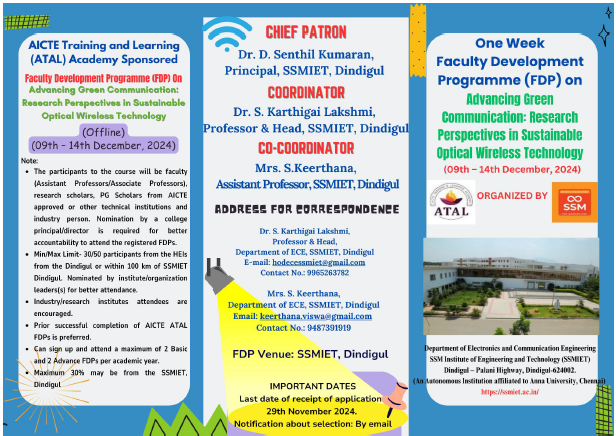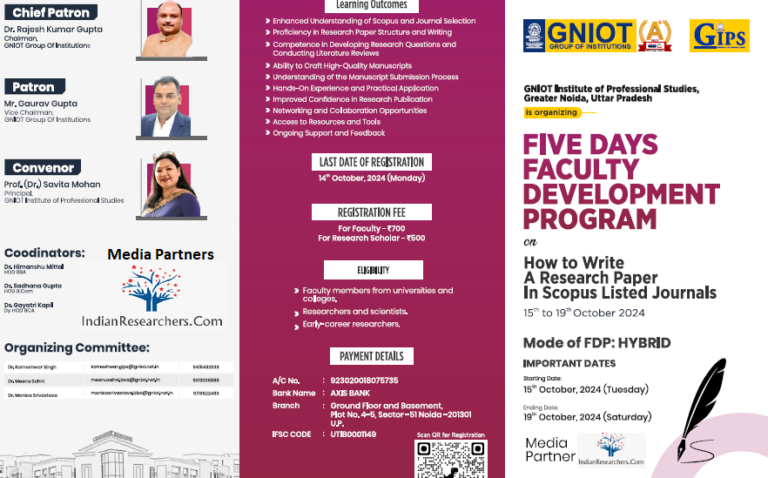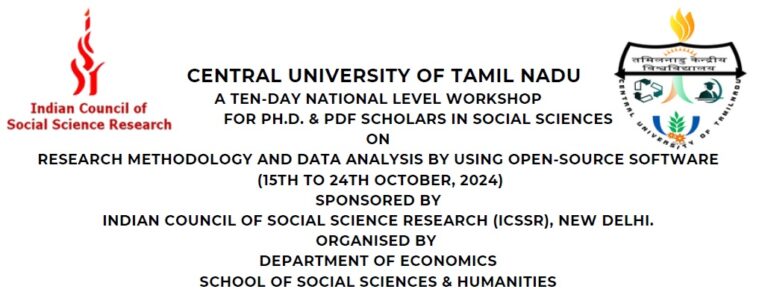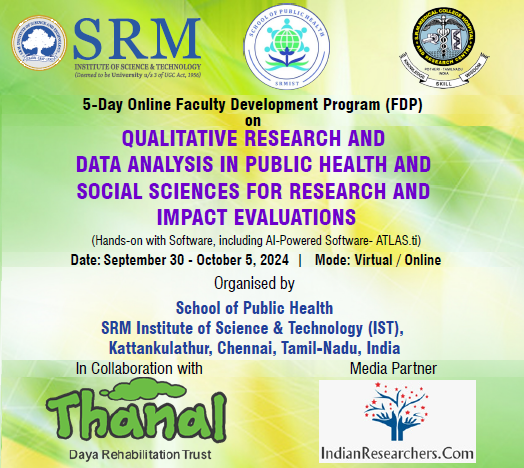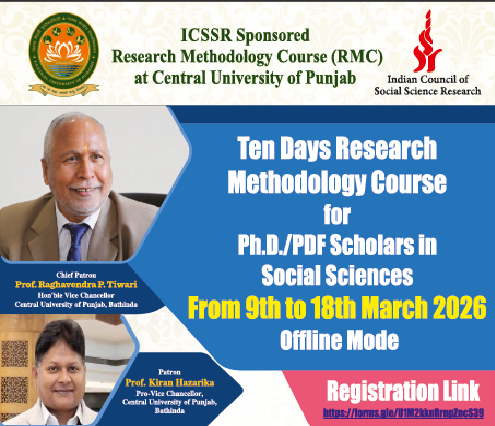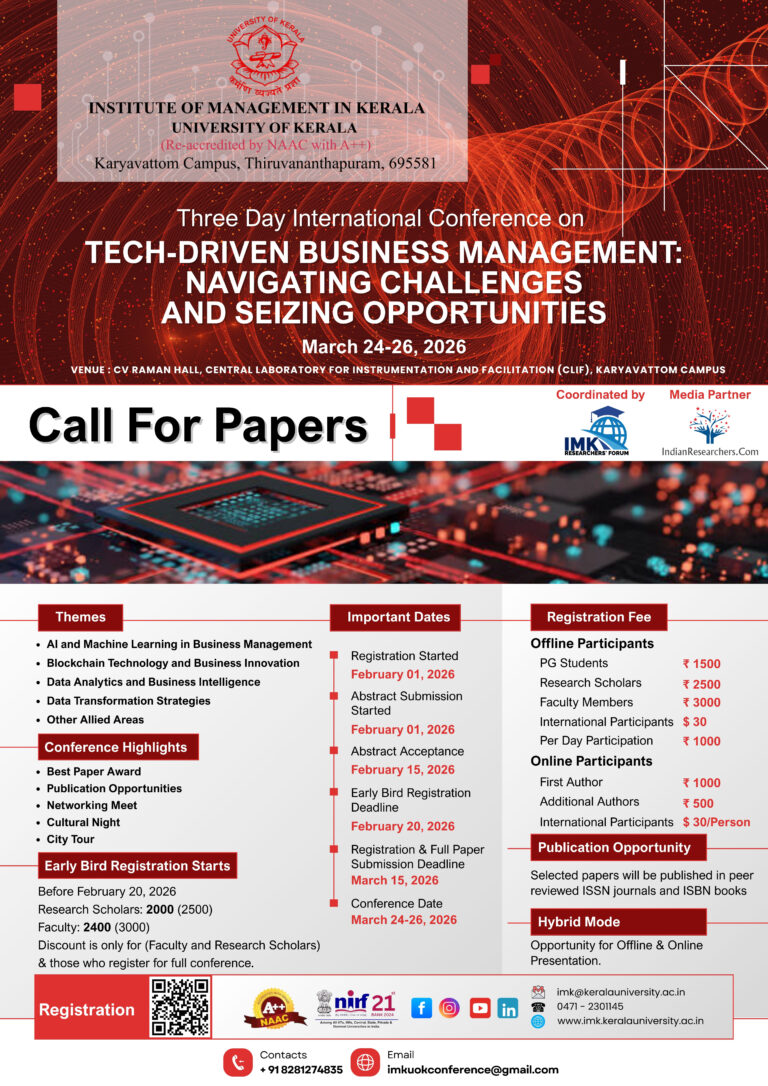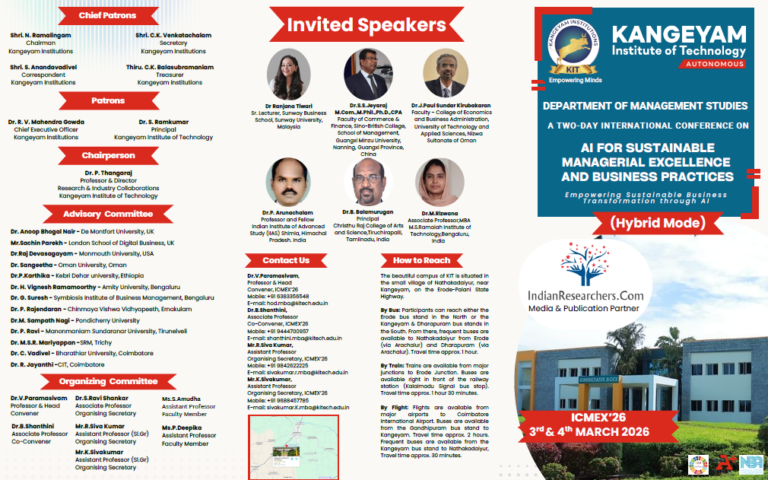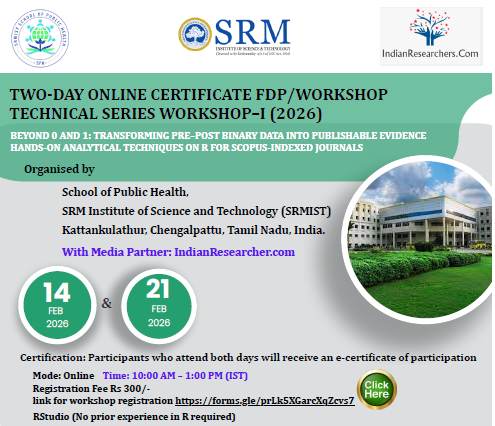About the Programme:Social Science Research always has been considered an important instrument for policy formulation that aimed...
FDPs
Indian Institute of Technology (BHU) Varanasi is offering a 5-day free workshop focused on Academic Writing for...
About the FDP The Faculty Development Program (FOP) on “Innovating Agritech for a Sustainable Tomorrow. Aligning with...
ABOUT THE RESEARCH METHODOLOGY COURSEThe Department of Folklore of the University of Kalyani is going to organize...
Department of Electronics and Communication Engineering at SSM Institute of Engineering and Technology (SSMIET), Dindigul! is organizing...
GNOT Institute of Professional Studies, Greater Noida, Uttar Pradesh is organizing FIVE DAYS FACULTY DEVELOPMENT PROGRAM on...
ICSSR sponsored Two-Week Capacity Building Programme On Data Analytics for Commerce Teachers Date: 14 October 2024 –...
ICSSR, New Delhi Sponsored A TEN-DAY NATIONAL LEVEL WORKSHOP on Research Methodology and Data Analysis by using...
Date: September 30- October 5, 2024 (except on 2nd October, 2024). Mode: Virtual / Online Timings: 9:30am...
